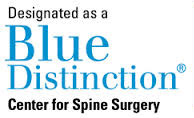What’s the Best Way to Recover from Back Surgery?
 The recovery process for back surgery can vary greatly from person to person, depending on factors like the type of surgery, the patient’s overall health, and the presence of any underlying conditions. But, in general, recovering from spine surgery effectively and safely involves several key steps.
The recovery process for back surgery can vary greatly from person to person, depending on factors like the type of surgery, the patient’s overall health, and the presence of any underlying conditions. But, in general, recovering from spine surgery effectively and safely involves several key steps.
Here are 10 tips to help you recover from spine surgery:
- Follow Your Surgeon’s Instructions: This is the most critical step. Your surgeon knows the specifics of your surgery and can give tailored advice for recovery.
- Pain Management: Proper pain management is essential. This often involves medications prescribed by your surgeon, but it’s also important to communicate with your medical team if you feel your pain isn’t well controlled.
- Physical Therapy and Exercises: Engaging in physical therapy and recommended exercises helps strengthen the muscles around the spine and improves flexibility. It’s vital to do these exercises as instructed and not to overdo them.
- Healthy Diet and Hydration: Eating a balanced diet rich in vitamins and minerals, particularly those that aid bone health, and staying well-hydrated are crucial for healing.
- Avoiding Certain Activities: Your surgeon will likely advise you to avoid certain activities that could strain your back, such as lifting heavy objects, twisting movements, or bending excessively.
- Regular Follow-up Appointments: Attend all scheduled follow-up appointments with your surgeon. These visits are crucial for monitoring your progress and addressing any concerns.
- Rest and Sleep: Ensure you get adequate rest and sleep. Your body heals and recovers faster when well-rested.
- Smoking Cessation: If you smoke, it’s strongly advised to stop, as smoking can impede healing, particularly in surgeries involving bone.
- Mental Health: Pay attention to your mental health. Recovery from surgery can be challenging not just physically, but also emotionally.
- Patient Education: Educate yourself about your condition and the recovery process. Understanding what to expect can help you adhere to your recovery plan more effectively.
Always consult with your healthcare provider for personalized advice.
